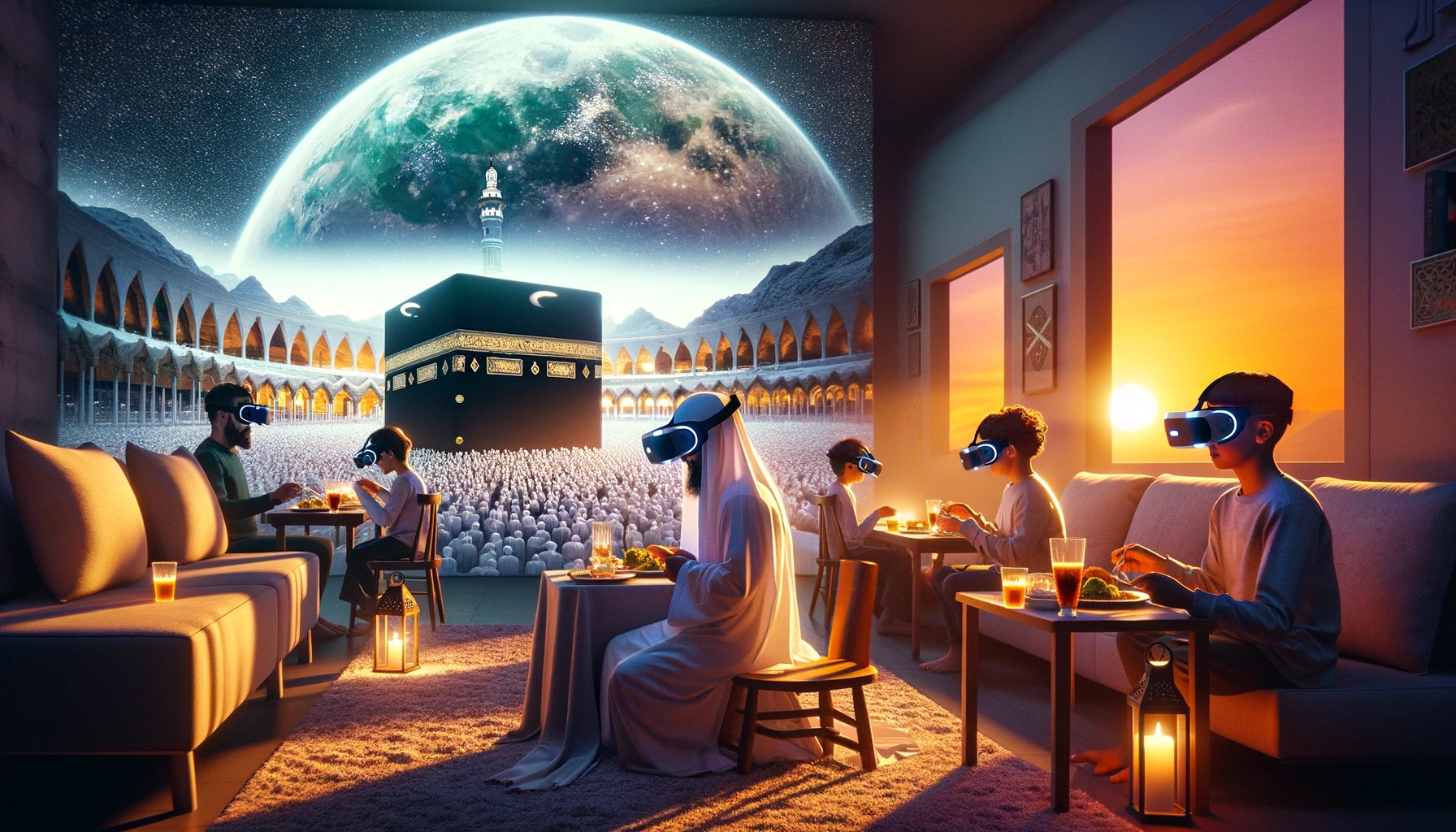Imagine, for a moment, the traditional Iftar experience transformed by the power of virtual reality (VR). The communal meal shared at sunset during Ramadan takes on entirely new possibilities. Instead of gathering around your own table, VR could transport you to the heart of Mecca, sharing a virtual Iftar with millions at the Grand Mosque. Perhaps you’d rather break your fast with a futuristic twist – a lunar colony with a breathtaking view of Earth as you enjoy space-age variations of traditional dishes.
The allure of VR Iftars lies in their adaptability. History buffs could find themselves transported to lavish banquets of the past, seated alongside renowned figures of Islamic history. Those seeking tranquility might design their perfect, personalized environment – a serene garden, a mountain retreat – an oasis of calm tailored to their spiritual needs.
Of course, with such innovation come hurdles. Simulating taste and smell, the cornerstones of any dining experience, remains a technological frontier for VR. Also crucial is ensuring these experiences are both accessible and inclusive. The potential benefits, however, are immense. VR iftars offer a unique way to bridge distances, fostering unity across a global Muslim community – especially important for those in isolated locations or unable to travel. They present educational opportunities, weaving history and tradition into engaging immersive experiences. There’s even the potential to pair VR Iftars with charitable causes, virtually extending a helping hand while sharing a meal.
Yet, the ethical debate persists. Can VR genuinely replace the vital in-person, communal aspect of traditional Iftars? How do we navigate potential commercialization, ensuring these experiences honor the spirit of Ramadan rather than exploiting it? It’s important that VR Iftars augment, rather than replace, real-world acts of charity and community building.
VR Iftar experiences stand at the crossroads of technology, tradition, and evolving human connection. They raise questions about shared experiences in the digital age. While still a nascent concept, this sparks a fascinating discussion about the future of faith in an increasingly virtual world.

